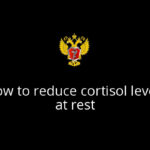Cellular Processes Underlying the Interplay Between Chronic Stress and Benign Prostatic Hyperplasia (BPH):
- Hormonal Imbalance:
- Cellular Impact: Elevated cortisol levels influence the androgen receptor activity in prostate cells, leading to an imbalance in the androgen-estrogen ratio.
- Resultant Process: Increased androgen receptor stimulation contributes to prostate cell growth and hyperplasia.
- Inflammatory Response:
- Cellular Impact: Chronic stress triggers the release of pro-inflammatory cytokines and chemokines within the prostate microenvironment.
- Resultant Process: Persistent inflammation contributes to cellular proliferation and tissue remodeling, fostering the development of BPH.
- Sympathetic Nervous System Activation:
- Cellular Impact: Chronic stress stimulates the release of neurotransmitters, such as norepinephrine, via sympathetic nerve activation.
- Resultant Process: Norepinephrine influences prostate smooth muscle contraction, potentially contributing to increased pressure on the urethra and obstructed urinary flow.
- Neurotransmitter Dynamics:
- Cellular Impact: Stress-induced alterations in neurotransmitter levels, including serotonin and dopamine, affect cellular communication.
- Resultant Process: Imbalanced neurotransmitter signaling may contribute to aberrant cellular responses, impacting prostate cell function and growth.
- Circadian Rhythms:
- Cellular Impact: Disruption of circadian rhythms by chronic stress affects the expression of clock genes and hormonal secretion patterns.
- Resultant Process: Altered circadian regulation may disturb cellular processes involved in maintaining prostate homeostasis, potentially influencing BPH development.
- Nervous System Homeostasis:
- Cellular Impact: Prolonged stress challenges the balance between the sympathetic and parasympathetic nervous systems.
- Resultant Process: Dysregulation of nervous system homeostasis may influence the release of neurotransmitters and neuropeptides, impacting cellular activities in the prostate.
Understanding these cellular processes is crucial for unraveling the complexities of how chronic stress contributes to the development and progression of benign prostatic hyperplasia. Targeted interventions addressing these cellular mechanisms may offer avenues for therapeutic strategies aimed at mitigating the impact of stress on prostate health
Verified by: Dr.Diab (December 21, 2023)
Citation: Dr.Diab. (December 21, 2023). Cellular Processes Underlying the Interplay Between Chronic Stress and Benign Prostatic Hyperplasia (BPH). Medcoi Journal of Medicine, 3(2). urn:medcoi:article22759.














There are no comments yet
Or use one of these social networks